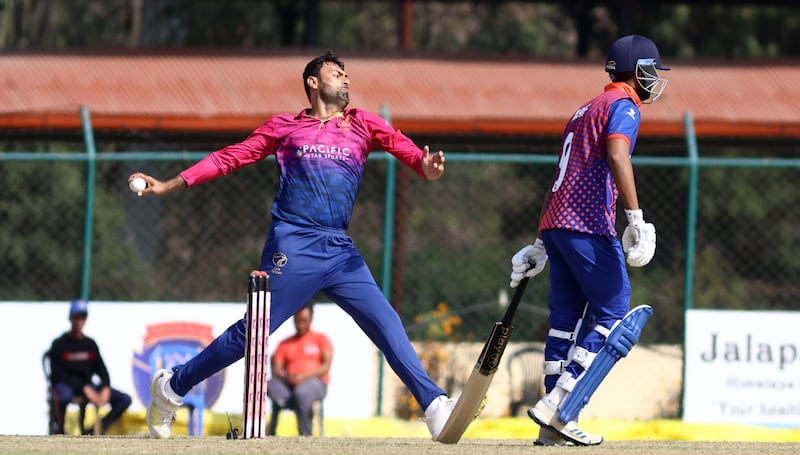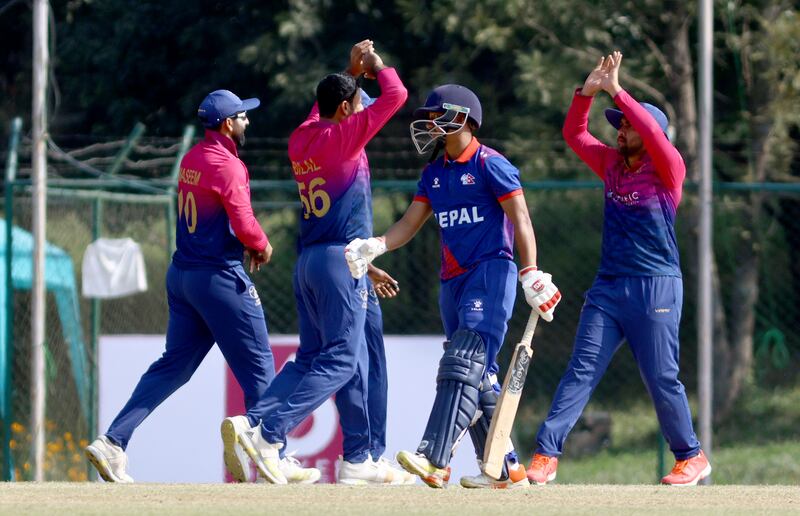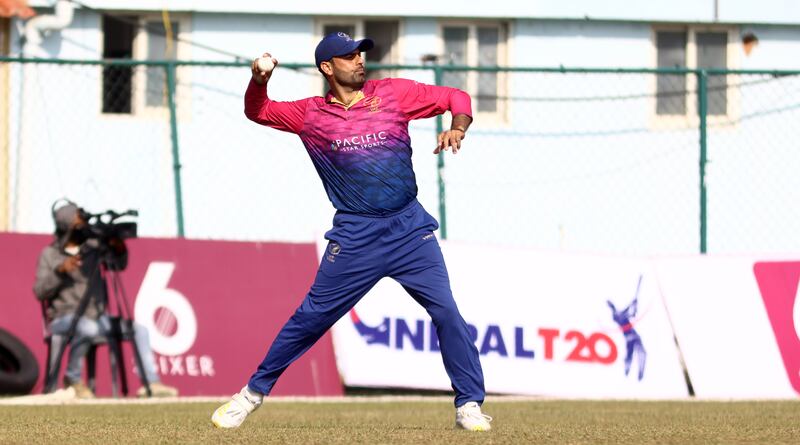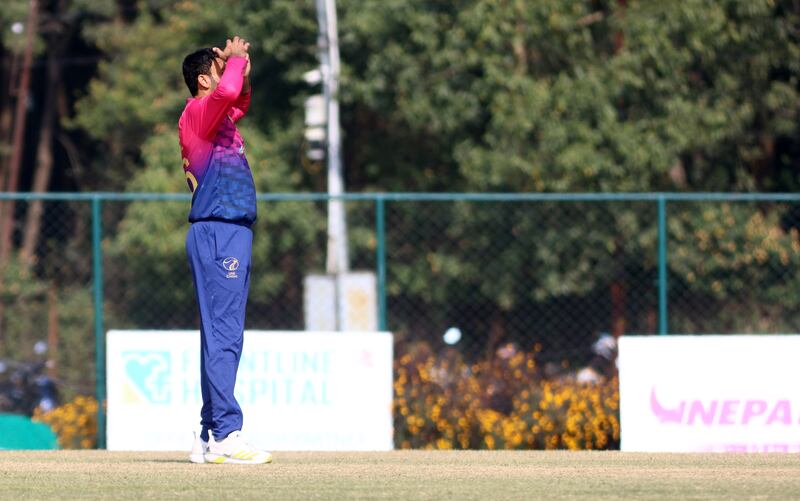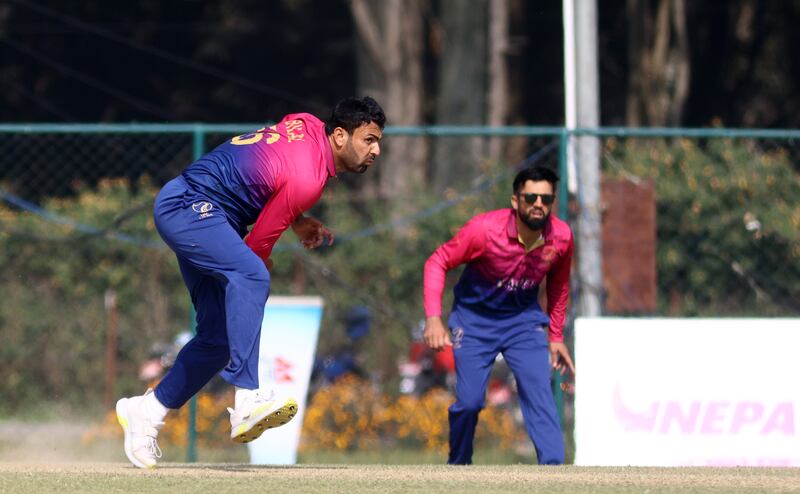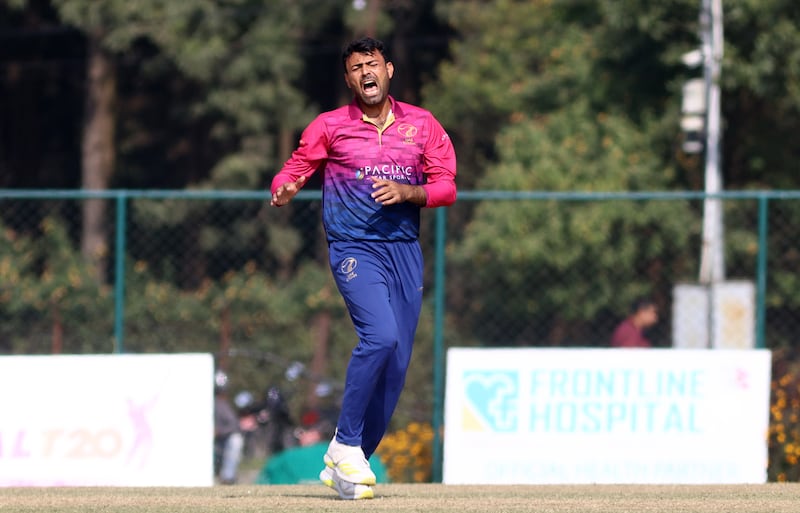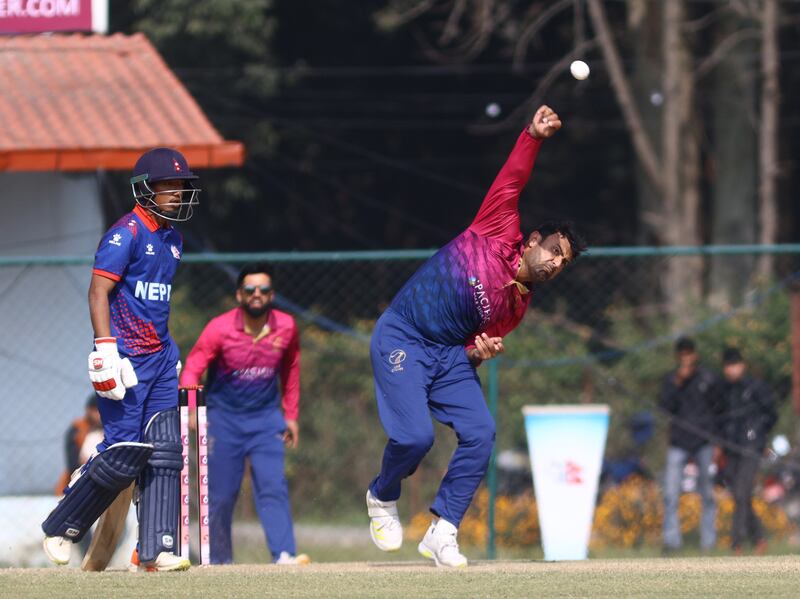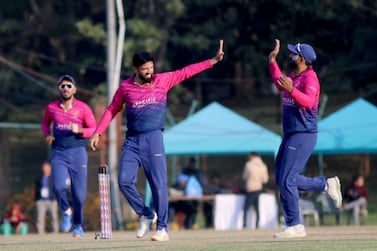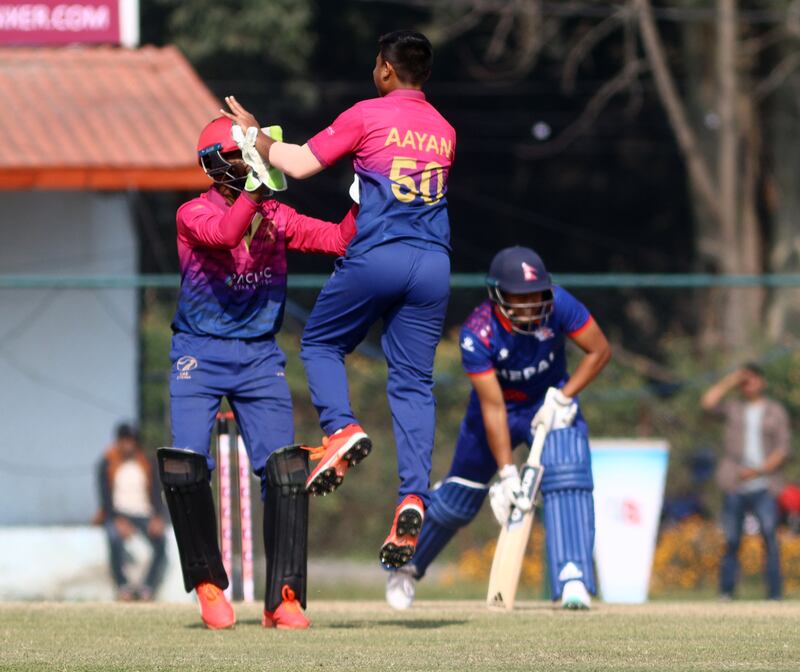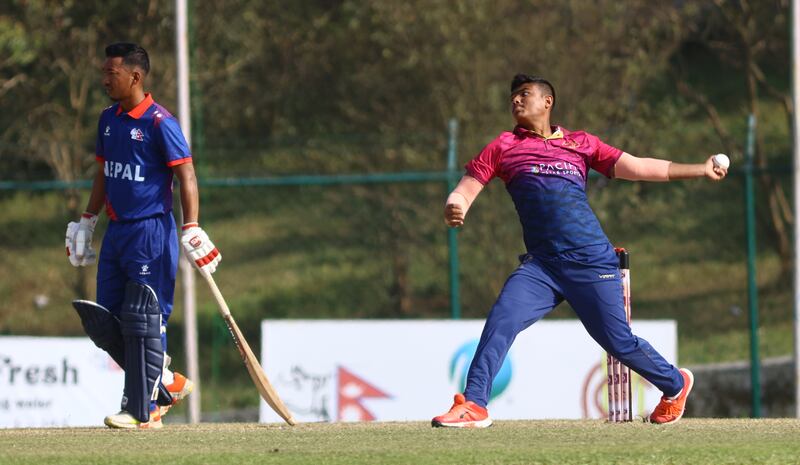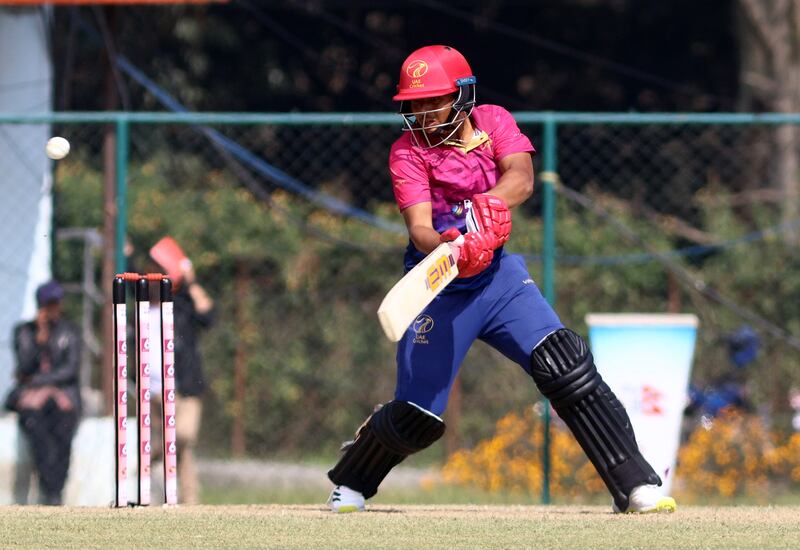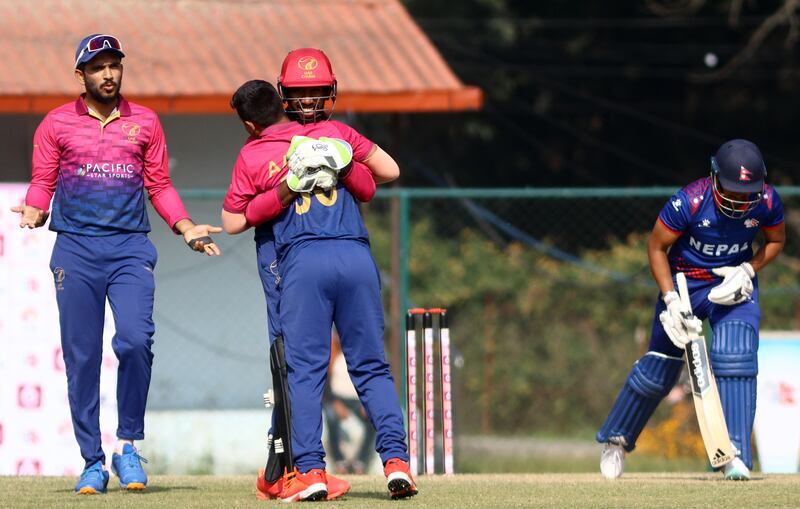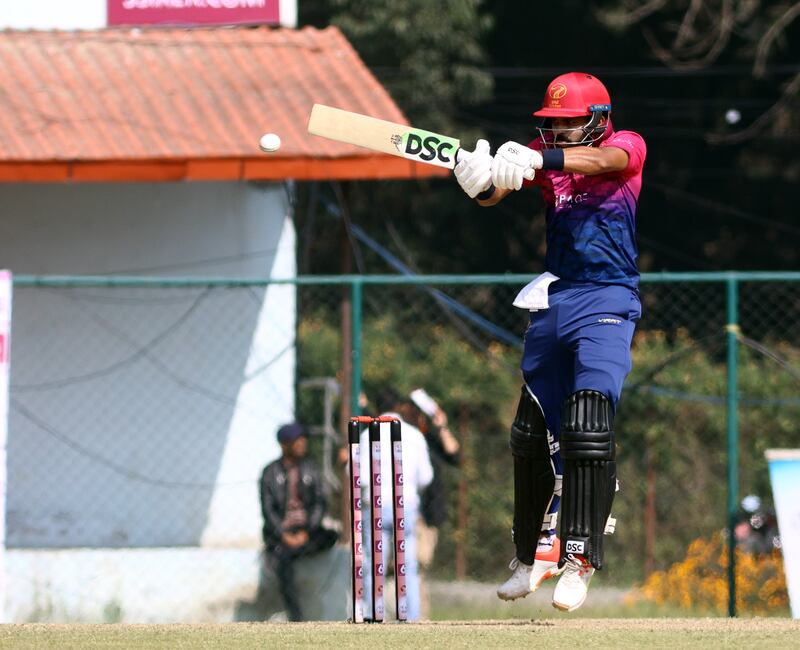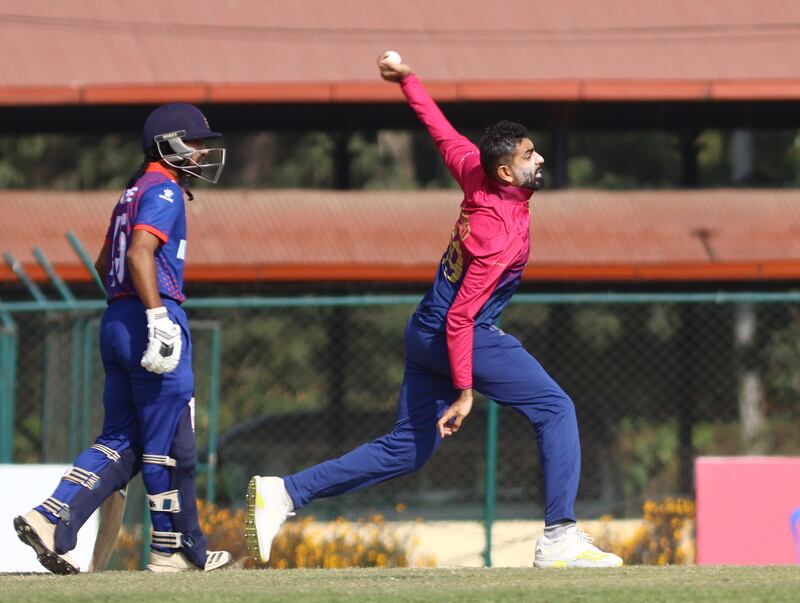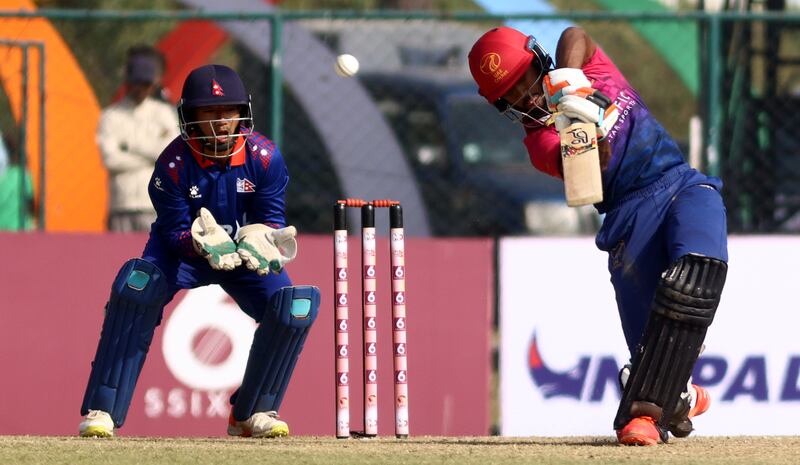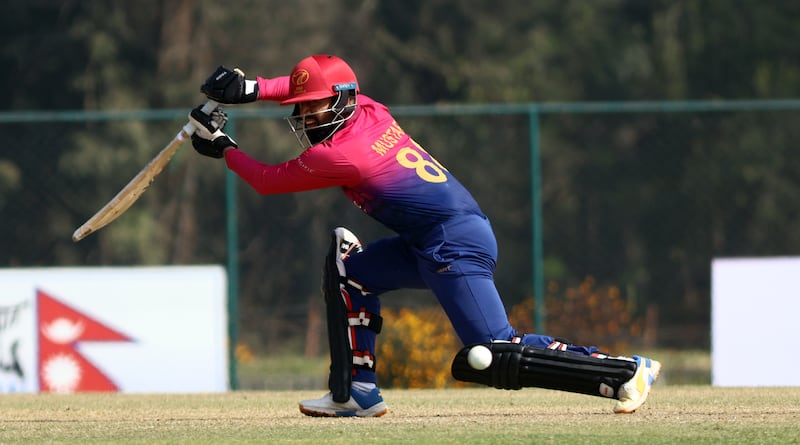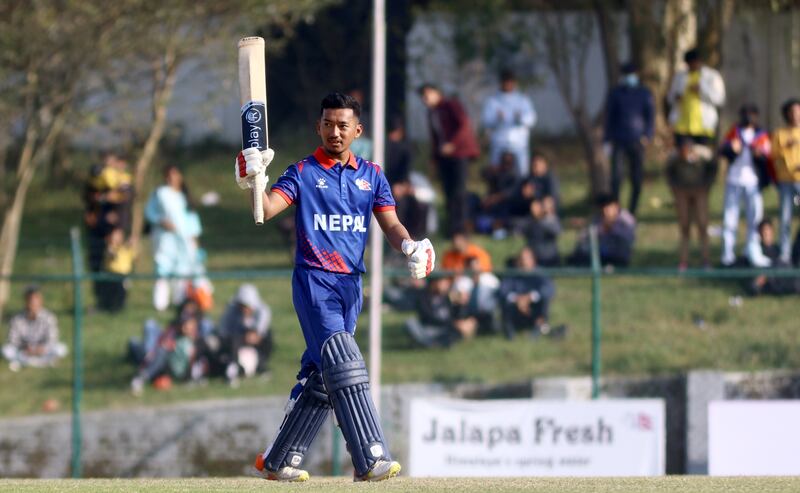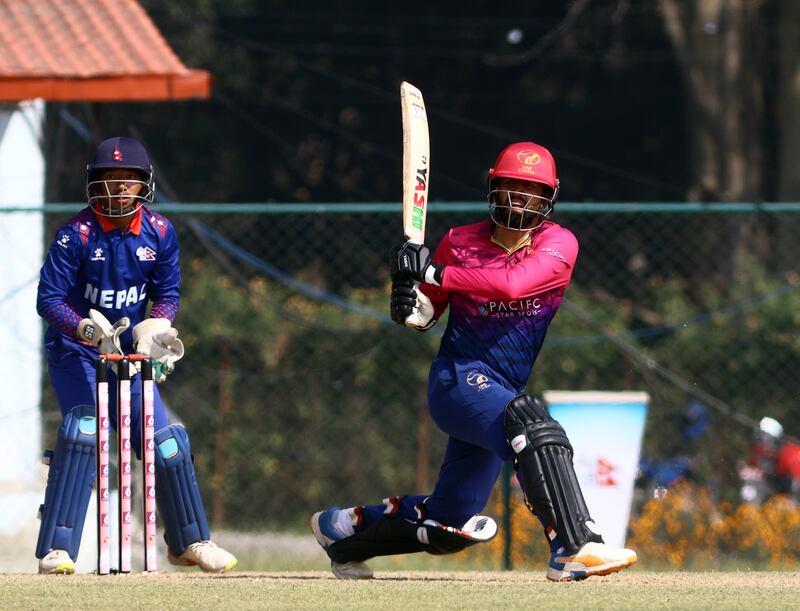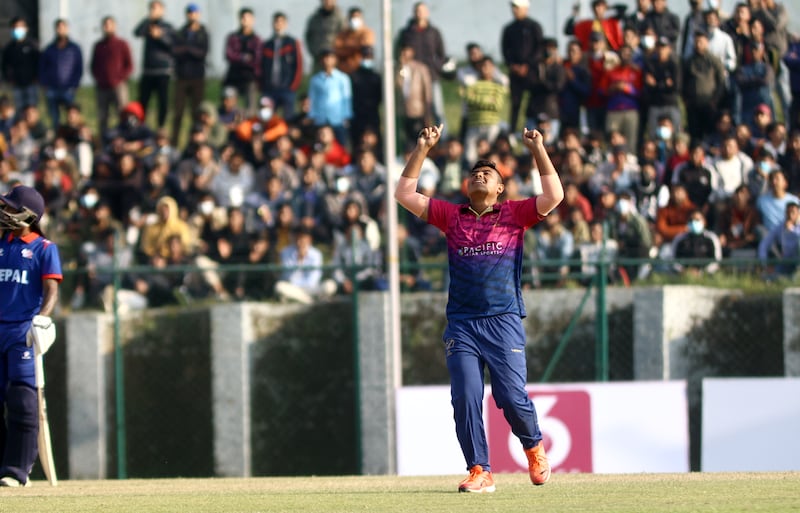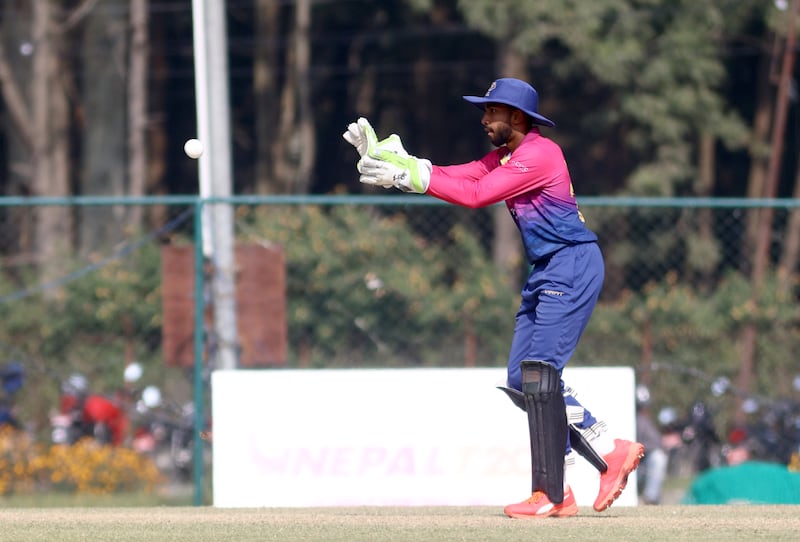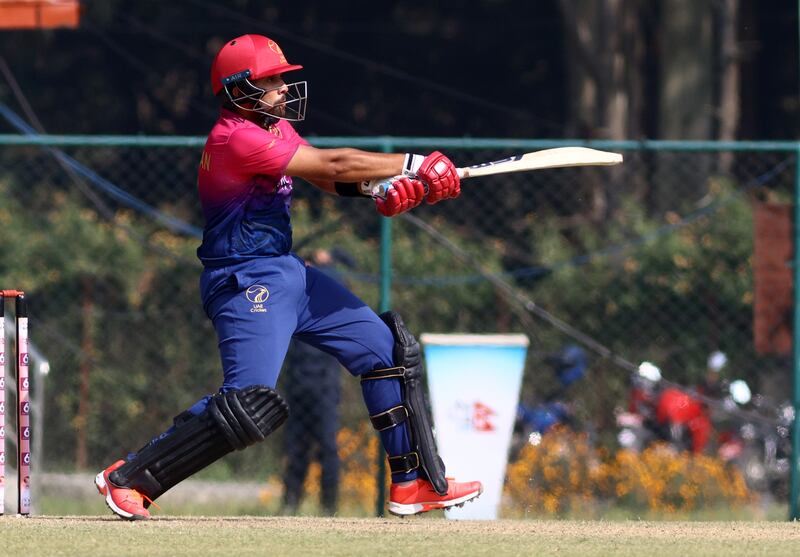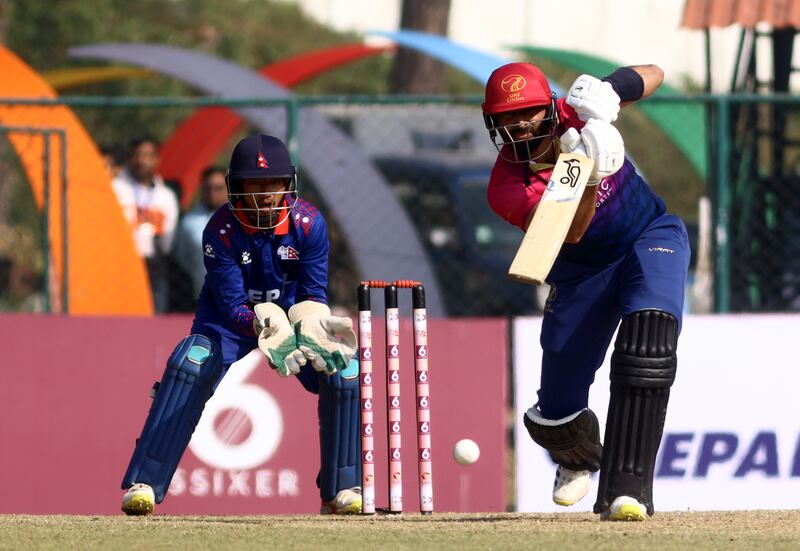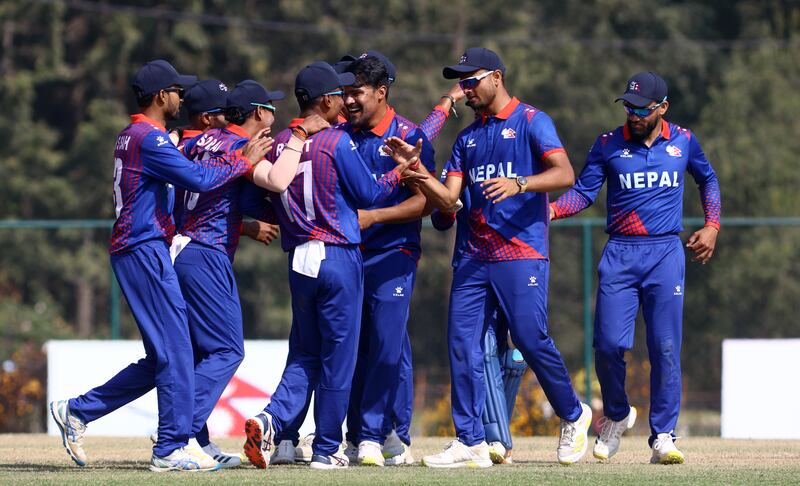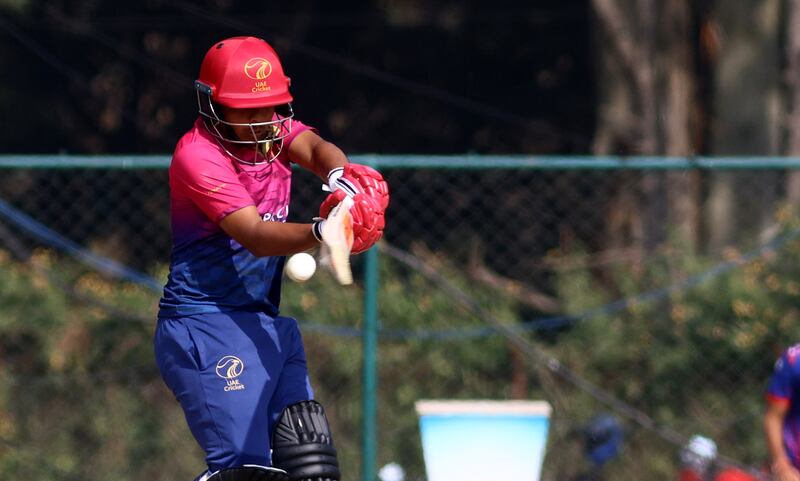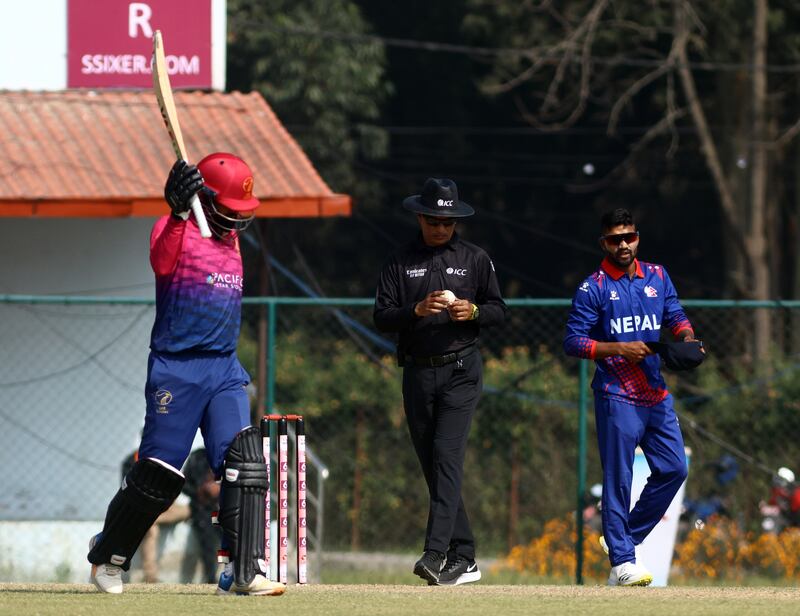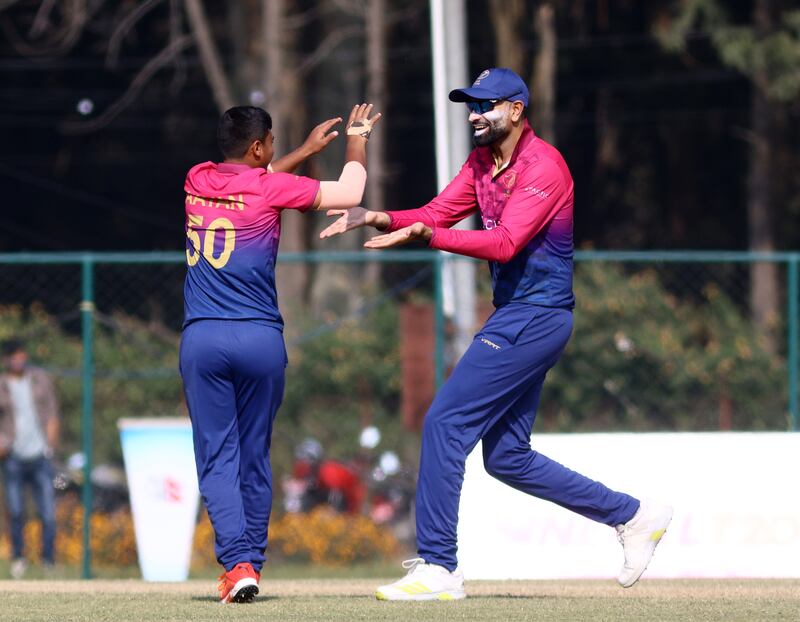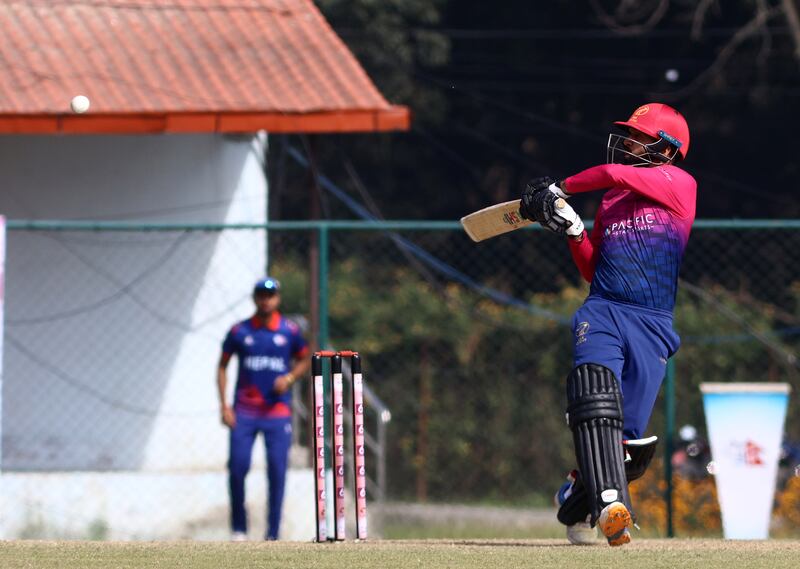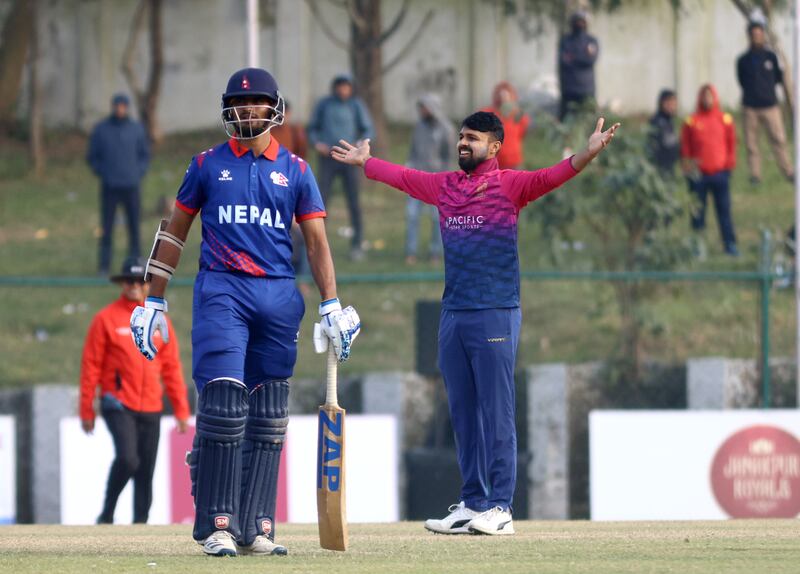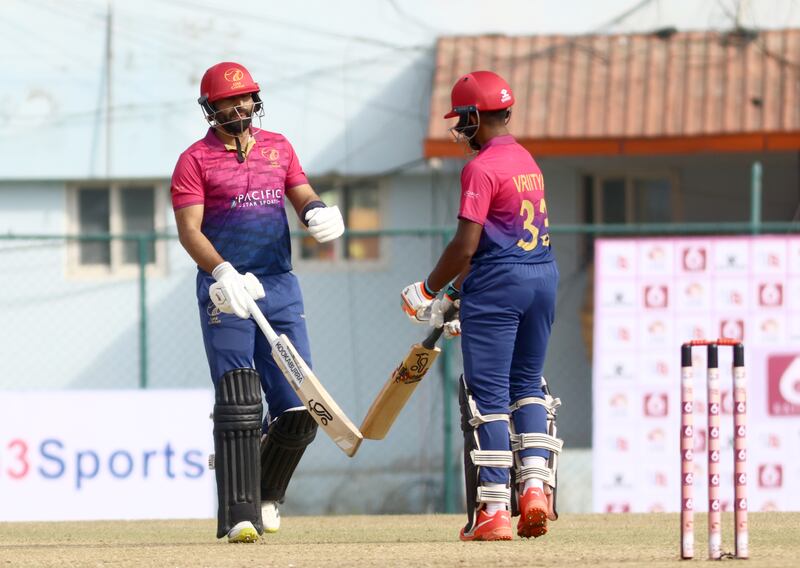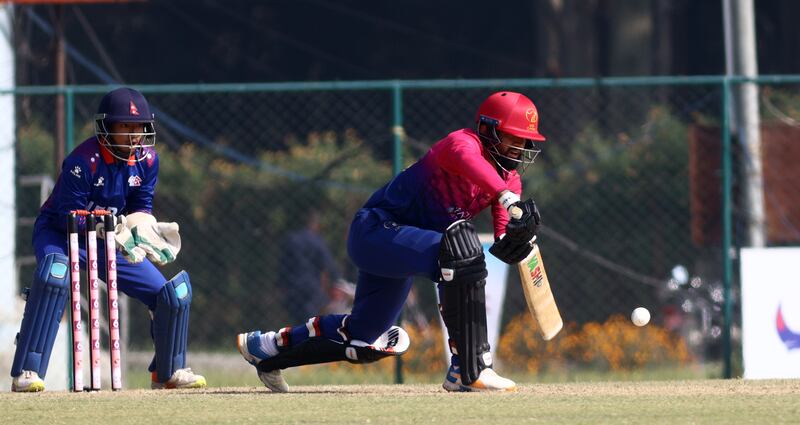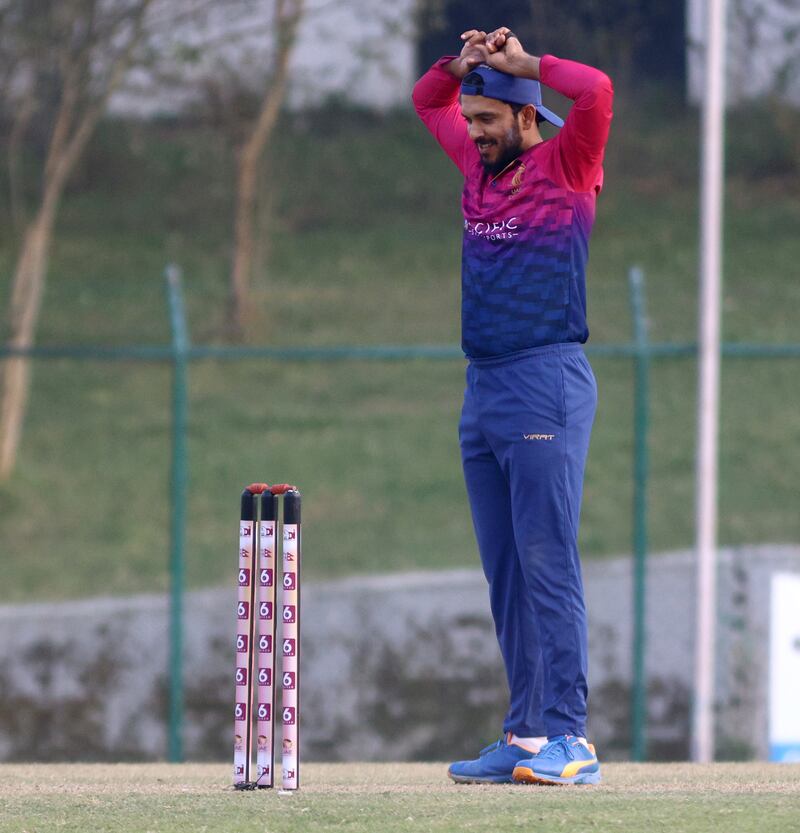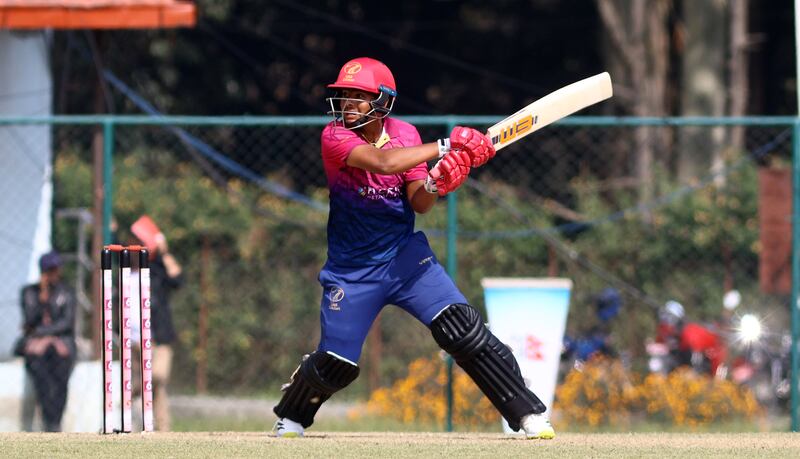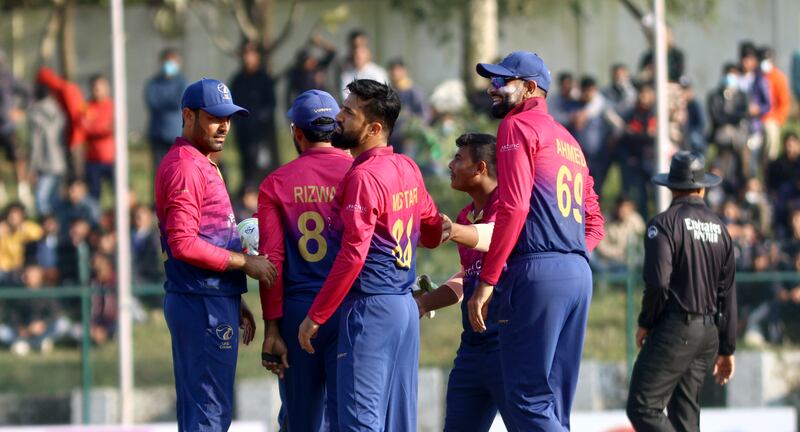It has been a week of firsts for Hazrat Bilal, the UAE’s newest fast bowling hopeful.
He is on tour with the national team for the first time, for their three-match one-day international series against Nepal in Kathmandu.
He made his international debut on Monday. On Wednesday, he took his first wickets in the cerise and violet colours of the UAE.
And on the same day, he was summoned before an ICC match referee for the first time, too.
As the second ODI had reached a tense climax, and Bilal had pushed for wickets to give UAE a chance of a series-clinching victory, he had strayed ever so slightly over the line, according to the standing umpire.
His appealing had been overzealous, hence he was up before the beak. At the close of play, Graeme Labrooy, the referee, warned him to tone it down in future, but inflicted no further penalty.
Maybe the former Sri Lanka bowler could remember what it was like to be starting out in international cricket, and what the desire to impress can do.
After all, Bilal turns 35 in January. His crack at international cricket has been a long time coming, and could conceivably be brief. He wants to make the most of whatever chances come his way.
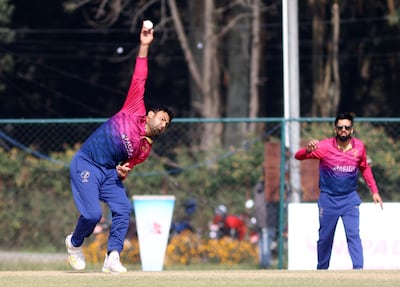
He originally arrived in the UAE from his native Peshawar in 2007, dovetailing work commitments with playing tape-ball cricket.
His shot at the national team never came, and he returned to Pakistan, only to then come back to Dubai in 2019. Having now re-completed his three-year residency criteria in the country, he is now eligible again to represent the UAE.
“I am very happy to be a part of this side,” Bilal said.
“I have wanted to be in this set up for a long time, and hoped I could make my debut before. But I am happy the time has finally come for me.”
Bilal is the latest fast-bowling find to have emerged from the country’s thriving tape-ball cricket scene.
Mohammed Naveed and Qadeer Ahmed, the former new-ball partnership for the national team who are now banned from the game for corruption, were two noted players to have played street cricket first.
The format of the game has been credited with being a prolific breeding ground for fast bowlers, particularly in Pakistan.
Bilal, who idolised Mohammed Asif and Shoaib Akhtar, said it is the reason for his pace.
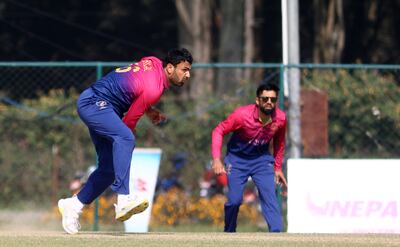
“I used to work in Dubai and play tape-ball cricket on the cement,” Bilal said.
“Because of that, I am able to bowl fast. When you bowl on cement, you have to bowl fast and try to generate pace.”
Bilal took two quick wickets in the second ODI against Nepal to reduce the team to 13 for two in five overs.
It gave the tourists the chance of defending their under-par total of 191, but the hosts overhauled it with three wickets to spare.
“In the first match, I was a little nervy but second time around I was more confident,” Bilal said.
“I was more confident of bowling the right length in this game and I was confident of taking wickets in the powerplay.
“That was the plan, because if I took wickets at that point, it would help the rest of the bowlers. If we had had another 15 or 20 runs to play with, the result could have been different.”
Nepal's win in the second ODI levelled the series at 1-1, making Friday's final game at Tribhuvan University a decider.
